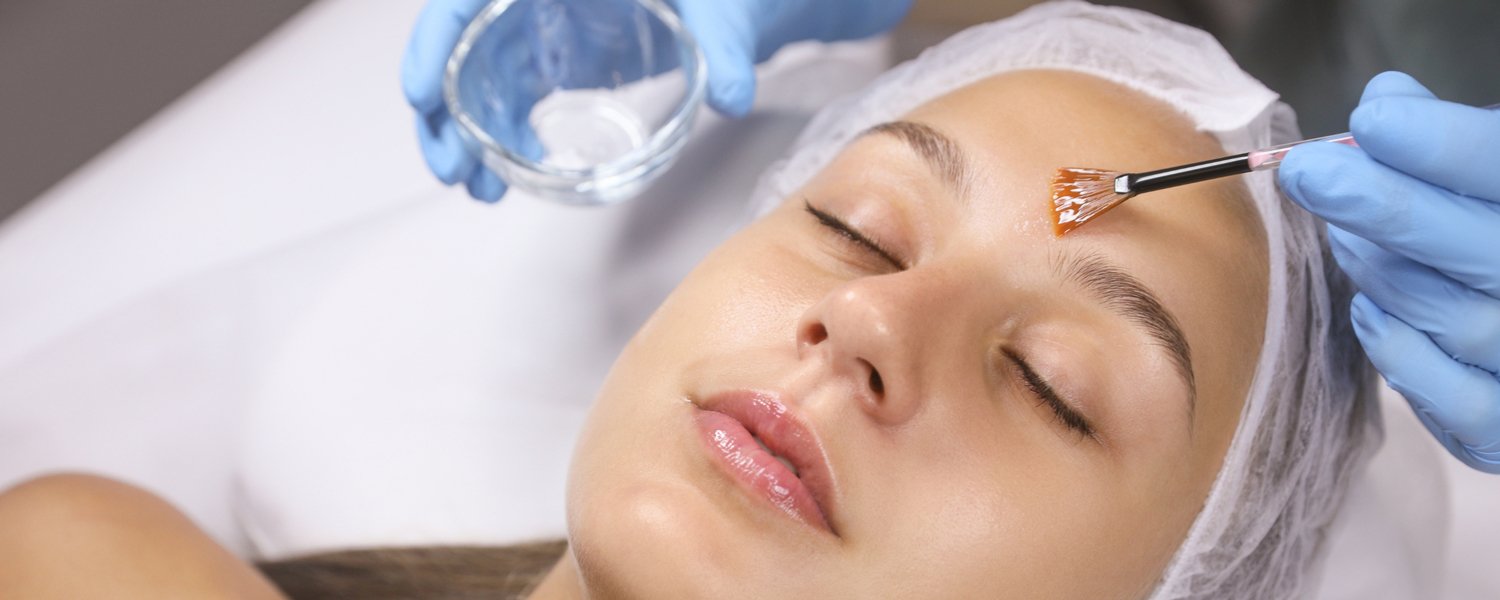Chemical peels in Dubai are a popular treatment for achieving smooth, radiant skin. They offer many benefits, from reducing fine lines to evening out skin tone. However, if you have sensitive skin, you may wonder if chemical peels are right for you. Sensitive skin often reacts quickly to skincare products, which makes treatments like chemical peels more complex. The key to a successful experience understands the process, choosing the correct type of peel, and taking the right steps to prepare and care for your skin.
Understanding Chemical Peels
A chemical peel is a skin-resurfacing procedure that exfoliates the epidermis’ outermost layers using a chemical solution. Dead skin cells are eliminated, exposing younger-looking skin beneath. The severity of chemical peels ranges from superficial to profound. These peels address a variety of skin conditions, including rough texture, wrinkles, acne, and Hyperpigmentation.
A milder method is crucial for fragile skin. Occasionally, the chemicals used in peels can result in inflammation, redness, or discomfort. To prevent negative responses, it is therefore essential to choose the appropriate peel type and strength.
Types of Chemical Peels Suitable for Sensitive Skin
Certain chemical peels are better suited for sensitive skin than others, and not all of them are created equal. For delicate skin types, mild or superficial peels are usually the safest. Here are some examples of the most popular gentle yet powerful peels:
- Glycolic Acid Peel: Sugarcane is the source of glycolic acid, which belongs to the alpha-hydroxy acid (AHA) family. Because of its small molecular size, which enables it to easily penetrate the skin’s surface without being overly abrasive, it is frequently employed in light peels. A glycolic acid peel can brighten lifeless skin, minimize fine wrinkles, and enhance skin texture. Patch testing is still advised even though this peel is usually safe for sensitive skin.
- Lactic Acid Peel: Another AHA that is less strong than glycolic acid is lactic acid. Because it is derived from milk, it is a mild exfoliant that is particularly good for skin that is sensitive. Lactic acid peels work well for moderate pigmentation problems, skin hydration, and skin tone improvement. They are frequently suggested as a first peel for those with sensitive skin.
- Mandelic Acid Peel: Almond-derived mandelic acid is distinguished by its bigger molecular structure. Because of this characteristic, it can enter the skin more gradually and cause less irritation to delicate skin. Peels with mandelic acid are perfect for decreasing pores and fine lines with the least amount of discomfort. For people seeking a mild yet efficient treatment, this peel is frequently recommended.
- Salicylic Acid Peel: Despite being a beta-hydroxy acid (BHA), salicylic acid is soluble in oil, which makes it a great treatment for oily and acne-prone skin. A low-concentration salicylic acid peel may be beneficial for sensitive skin types that are prone to acne. This peel soothes irritated skin, clears congested pores, and lowers inflammation. It is advisable to see a dermatologist before doing a salicylic acid peel, though, if your skin is really sensitive.
Benefits of Chemical Peels for Sensitive Skin
When applied properly, chemical peels can be quite helpful for sensitive skin. The following are some benefits to anticipate:
- Gentle Exfoliation: Physical exfoliants, such as scrubs, frequently cause reactions in sensitive skin. A softer option that removes dead skin cells without causing severe abrasion is a moderate chemical peel.
- Even Skin Tone: Chemical peels are well known for achieving a smoother, more consistent complexion by minimizing Hyperpigmentation and discoloration.
- Improved Hydration: Peels, particularly lactic acid peels, can help the skin retain more moisture, which is important for dry, sensitive skin types.
- Increased Radiance: By reducing dullness, chemical peels can make skin look more radiant. People who live in areas with a lot of sun exposure, like Dubai, where delicate skin frequently requires a boost, would especially benefit from this impact.
Preparing for a Chemical Peel with Sensitive Skin
To get the finest outcomes with the least amount of aggravation, preparation is key. To prepare your delicate skin for a peel, follow these steps:
- Speak with a Dermatologist: It’s best to speak with a dermatologist if you’re worried about how your skin might respond. They can offer guidance on safe concentrations and suggest the appropriate kind of peel.
- Steer clear of Retinoids and exfoliants: One week before to your procedure, cease using any Retinoids or exfoliating products. These may enhance the likelihood of skin irritation during the peel and make the skin more sensitive.
- Keep Hydrated: In the days preceding the procedure, make sure your skin is properly hydrated. Hydrated skin is more tolerant of the peel and heals more quickly.
- Sun Protection: Because chemical peels make skin more sensitive to sunshine, protect your skin from the sun for at least a week before getting one, and wear sunscreen every day.
What to Expect During the Treatment
A chemical peel can be less frightening if you know what to anticipate. Here is a broad summary:
- Cleaning: To get rid of any contaminants, your skin will first be washed.
- Peel application: The selected peel solution is applied to the skin for a predetermined amount of time, often one to ten minutes.
- Slight Tingling or Burning feeling: You can experience a slight burning or tingling feeling while receiving therapy. This is typical, particularly for skin that is sensitive.
- Neutralization and Removal: To avoid overexposure, the peel is neutralized or rinsed off after a predetermined amount of time.
Aftercare Tips for Sensitive Skin
For sensitive skin, the aftercare phase is essential. A proper post-peel regimen guarantees the best results and helps calm the skin. Here are some pointers for aftercare:
- Steer clear of the sun: After peeling, your skin will be more vulnerable to the sun. Use a broad-spectrum SPF of 30 or greater, wear a helmet, and stay out of direct sunlight.
- Moisturize Regularly: Keeping your skin hydrated will help reduce redness, flakiness, and irritation. Opt for a gentle, fragrance-free moisturizer to avoid further sensitivity.
- Avoid Scrubbing or Touching: A few days following the procedure, your skin may begin to peel. Avoid touching, picking or washing your skin because these actions can irritate it or leave scars.
- Avoid Active Ingredients: For at least a week following the peel, stay away from products that contain strong acids, Retinoids, or exfoliants. These may be overly severe and cause healing to be delayed.
Long-Term Benefits of Chemical Peels
Chemical peels can improve sensitive skin in the long run if done properly:
- Better Texture: Your skin can have a more even texture by having rough areas smoothed out with light peels regularly.
- Improved Skincare Absorption: Chemical peels increase the depth and efficacy of other skincare products by eliminating dead cells.
- Decreased Wrinkles and Fine Lines: Chemical peels can gradually lessen the visibility of fine lines, giving the skin a younger, more youthful appearance.
Even for sensitive skin, chemical peels can be a beneficial supplement to a skincare regimen. You can safely benefit from smoother, healthier skin by selecting a mild peel, adhering to pre- and post-treatment instructions, and consulting with a qualified specialist.
For those thinking about getting a peel, following the right precautions will guarantee the treatment’s efficacy while safeguarding your skin, particularly in places like Dubai where sun exposure is significant. Chemical peels provide a means of revitalization and renewal, enabling you to attain the desired radiant complexion without sacrificing the health of your skin.




